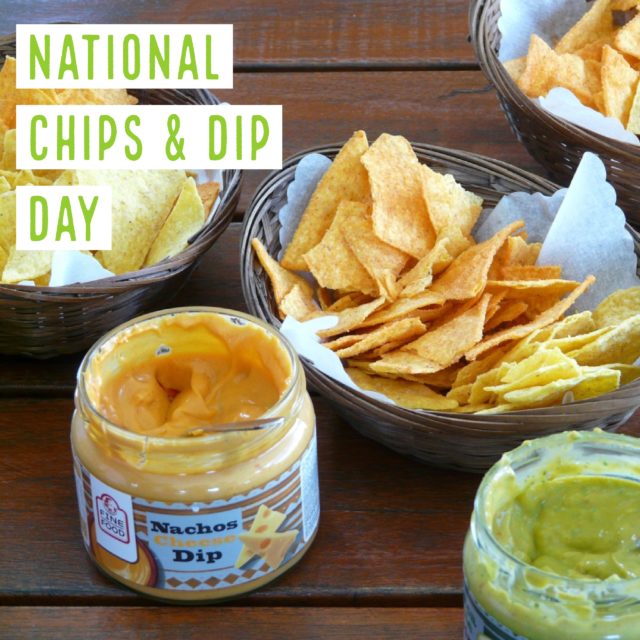By Vivian Kwok | Reporter
The semester dipped into the spring season earlier this week, and Friday is national chips and dip day. Students can celebrate the spring equinox with classic queso or guacamole. However, March is also national nutrition month, so Friday could also be an opportunity to dip into more refreshing, healthful chip and dip options.
According to The Academy of Nutrition and Dietetics, National Nutrition Month is a campaign dedicated to nutrition education and information.
Lecturer of family and consumer sciences Stan Wilfong said registered dietitians are the nutrition experts. Wilfong said dietitians can work in corporate wellness, sports, schools or the government among other areas, and he practiced as a registered dietitian for 25 years in healthcare.
“Dietitians work in all sorts of areas,” Wilfong said. “It’d be easier to tell you what we don’t do.”
Wilfong said one of the primary areas in which dieticians work is in hospitals with patients who have chronic diseases and patients with disease that may not be chronic.
“[Dietitians manipulate] nutrient intake to either mitigate disease or lessen symptoms of disease,” Wilfong said.
Wilfong said some patients may refer to a physician or nurse for nutrition advice. However, nurses take one basic nutrition course, and physicians are not required to take any in medical school.
“I have all sorts of stories of notoriously bad advice given to patients by physicians and nurses,” Wilfong said. “No other credential has the level of education that we have or the amount of supervised practice that we have. We are the experts in nutrition.”
Wilfong said there are some common misnomers that people may have about healthy eating.
“There are no healthy foods and there are no unhealthy foods,” Wilfong said. “There are healthy diets and there are unhealthy diets.”
Wilfong also said the key to a healthy diet is to have balance, variety and moderation. He said carbohydrates, fats and protein are all fine to consume, and people should not eliminate food or food groups because each represent different nutrients people need. He also said people should make sure to not intake too much of a certain nutrient while also making sure to not intake less than the minimum of it.
“Everything is ok. It’s fine to have some Oreos. It’s fine to have a Snickers bar. It’s fine to have a Big Mac over at McDonald’s as long as you’re moderate about it,” Wilfong said. “If you decide you want to have a burger once a week, it’s not a bad thing.”
He also said it is okay to celebrate national chip and dip day. However, there are also healthier alternatives to still participate in the festivities of the holiday.
“If you’re going to have some chips and dip and you’re going to have some that are notoriously problematic that are loaded with sodium, [there are] a couple of great options,” Wilfong said.
First, Wilfong said to prepare dips yourself from online recipes to avoid excess sodium in ready-made dips. He also said to replace sour cream with yogurt for creamy dips.
“You get more protein in it and you use significantly less fat,” Wilfong said.
Honors program and advisement coordinator Diane Haun, who is also part of the Baylor Weight Watchers group, uses a recipe that calls for non-flavored, non-fat greek yogurt with ranch dip mix.
“You mix it up and it makes an excellent dip.” Haun said. “It has less calories and it carries a lot of protein with it.”
A second alternative for dip, Wilfong said, is making fresh, bean-based dips; Hummus is one example.
“We’re not getting enough fiber. We’re not getting enough potassium in our diets,” Wilfong said. “And beans happen to be good sources of both.”
Wilfong said a third option is eating a vegetable-based dip. He said fresh salsa fresca or pico de gallo with onions, tomatoes and peppers are a couple of examples.
“That’s all fantastic,” Wilfong said. “Different colors are in it, and every color is associated with a different group of nutrients and a different group of phytochemicals.”
For chips, Wilfong said to replace them with vegetables for dips like hummus, or even fruit for yogurt-based dips.
“If you really just like the crisp and crunch of chips, opt for the baked ones,” Wilfong said.
Wilfong said eating chips and dip is ok, but to limit the sodium, saturated-fat and calories while maximizing nutrients like potassium and fiber. He also said to remember to read the nutrient labels and to remember moderation.



